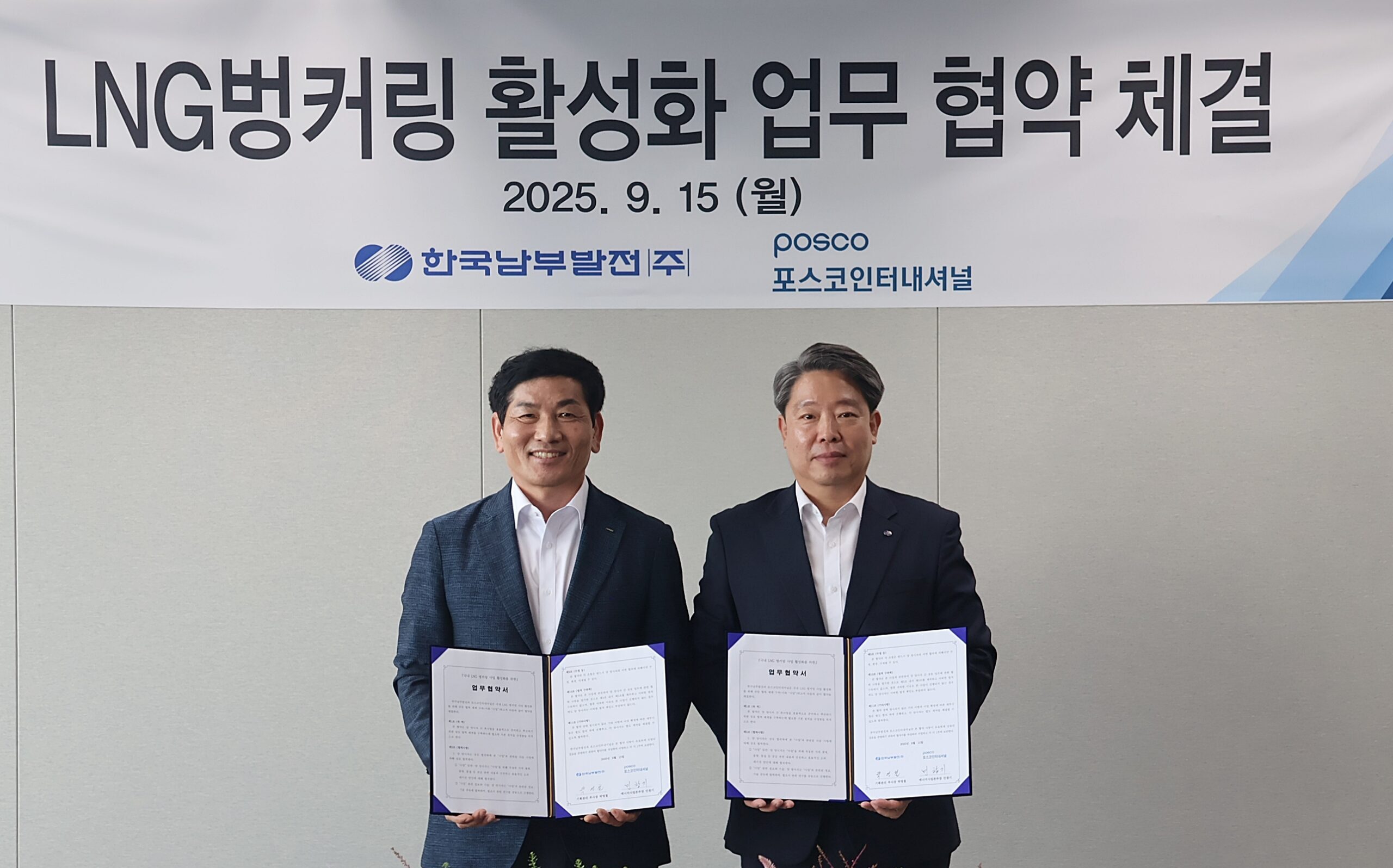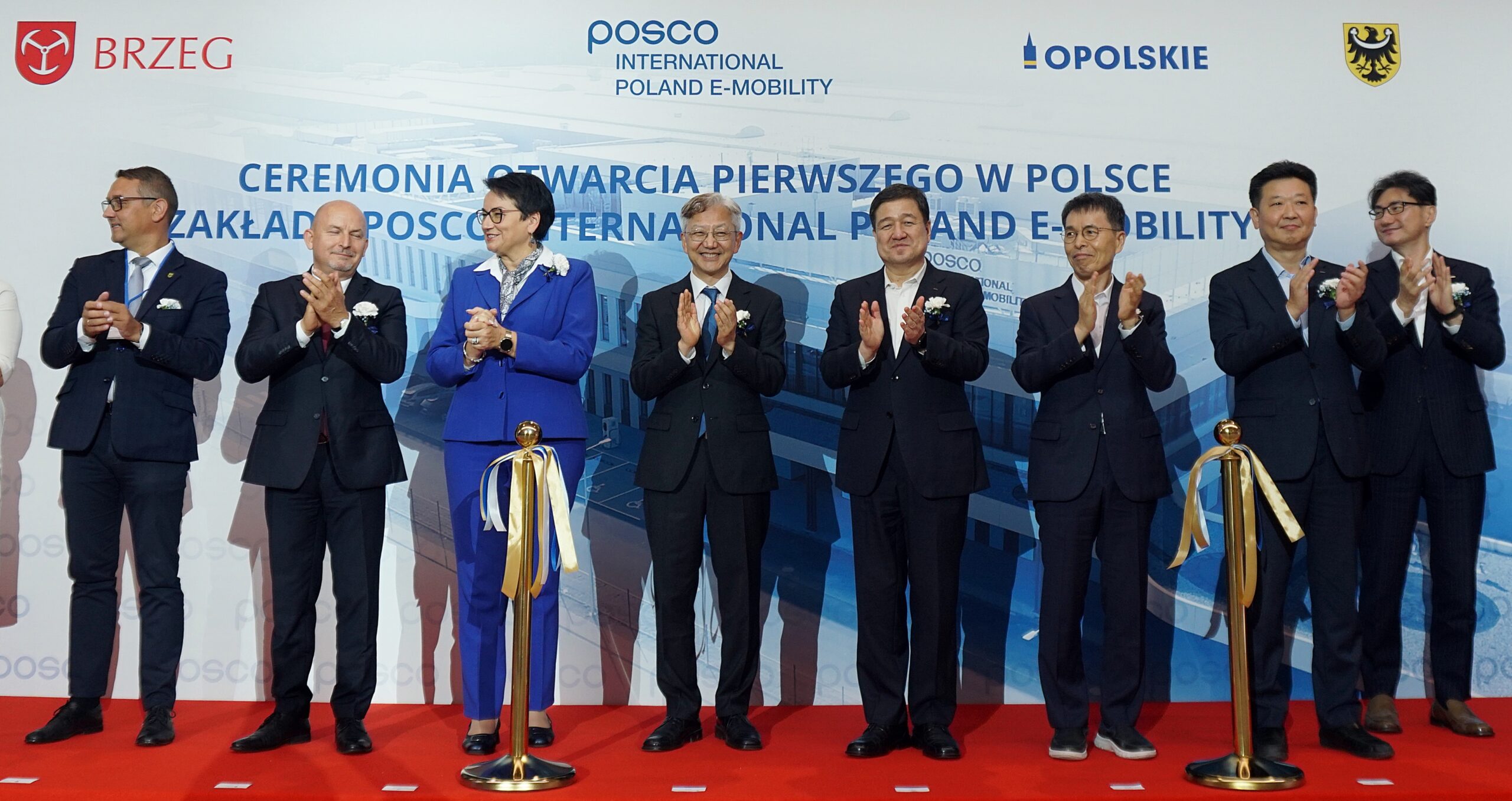- On the 29th, the three companies signed a business agreement to establish a cooperative system for supplying LNG as marine fuel
- In 2027, a vessel with 12,500m3 of LNG capacity will be deployed, linked with 1,330,000㎘ storage infrastructure of Gwangyang LNG Terminal
- POSCO Group consolidates LNG value chain capabilities to transform Yeosu Gwangyang Port into a global LNG hub

On the 29th, POSCO INTERNATIONAL (CEO Lee Kye-In) signed a business agreement with POSCO FLOW and Yeosu Gwangyang Port Authority to establish a ‘cooperative system for LNG bunkering at Yeosu Gwangyang Port.’
This agreement pursues the early establishment of LNG infrastructure for marine fuel in the Yeosu Gwangyang Port area in response to the global shipping industry’s shift toward low-carbon fuels. Together, the three companies will collaborate to establish a comprehensive support system covering the entire cycle, from the introduction to the operation of LNG bunkering vessels, leveraging the Gwangyang LNG Terminal to promote fuel supply for LNG-powered vessels.
This agreement seeks to create synergies by combining their expertise and dividing roles.
POSCO INTERNATIONAL will oversee the entire process, from LNG procurement to bunkering services, utilizing the storage tanks and dedicated bunkering wharf at the Gwangyang LNG Terminal 2, scheduled for completion in 2026. As the port operator, Yeosu Gwangyang Port Authority will handle safety reviews and policy support to promote LNG bunkering, while POSCO FLOW leverage its ship operation expertise to construct and operate a 12,500m3 LNG bunkering vessel, scheduled for delivery in 2027.
Recently, the global shipping industry has been accelerating fuel transitions due to International Maritime Organization (IMO) regulations. As a result, demand for LNG-powered ships is rapidly increasing, with approximately 30% of newly built ships expected to be LNG-powered over the next decade. In fact, the number of LNG-powered ships, which stood at 354 at the end of 2022, is projected to grow to 778 by 2027, showing an annual growth rate of nearly 30%.
Consequently, the bunkering market for supplying fuel to ships is gaining attention. LNG bunkering, which involves supplying LNG instead of traditional petroleum-based fuels, is conducted through methods such as ship-to-ship, port-to-ship via port facilities, and truck/terminal-to-ship via onshore tanks or trucks, emerging as a key focus for global shipping companies.
In this context, Yeosu Gwangyang Port is considered ideally positioned for this transition. The port handles 65,000 vessel calls annually and processes 213 million tons of import/export cargo. As a key hub on Asia-Pacific shipping routes, it has already identified potential bunkering demand from global shipping companies, including Japan’s top three carriers.
POSCO INTERNATIONAL plans to complete the dedicated bunkering wharf at Gwangyang LNG Terminal 2 by the third quarter of 2026, establishing South Korea’s largest LNG storage infrastructure with a combined capacity of 1,330,000 ㎘ across Terminals 1 and 2. By May 2027, a 12,500m3 dedicated bunkering vessel will be deployed to launch LNG bunkering services in the southeastern port region, with plans to secure a stable demand base through long-term supply contracts with global shipping companies.
POSCO INTERNATIONAL anticipates expanding into related businesses, including LNG bunkering, development and production, transportation and storage, supply and sales, tank leasing, and vessel commissioning, leveraging its dedicated wharf and vessels.
“Amid the global push for carbon neutrality and growing demand for LNG as marine fuel, this agreement is significant as it acts as a catalyst for public-private cooperation in establishing an LNG hub port,” Hong Sang-Pyo, Vice President of Operations at Yeosu Gwangyang Port Authority, stated at the signing ceremony. “We will continue to advance the project successfully through close collaboration among the three companies.”
“POSCO INTERNATIONAL has developed a complete LNG value chain—from exploration to supply—anchored at the Gwangyang LNG Terminal. Through this agreement,” Min Chang-Kie, Head of POSCO INTERNATIONAL Energy Business Division, stated. “The three companies plan to establish an efficient and stable LNG bunkering supply system through joint collaboration.”







